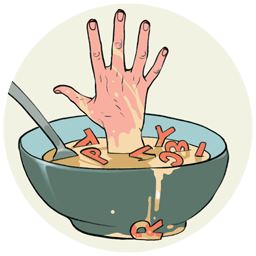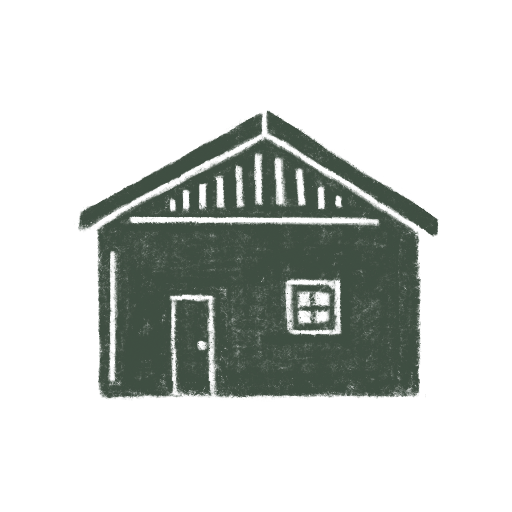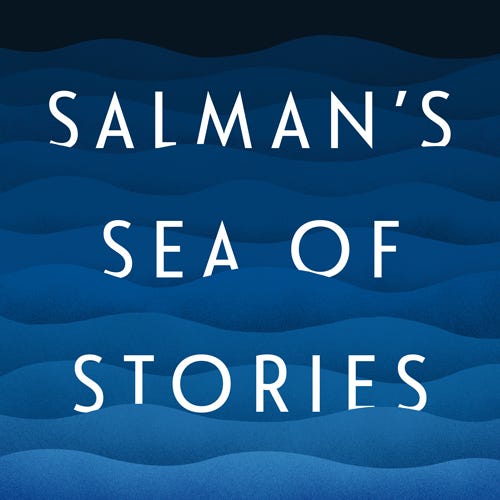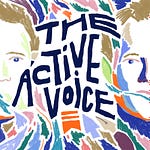Now in his 50s and living in Tel Aviv, Etgar has published prolifically, most prominently short stories, many of which can be found on his Substack,
, but also essays, poems, and films, including 2007’s Jellyfish, which he co-directed with his wife, Shira Geffen (see his latest short film below). He’s also a favorite guest of Ira Glass’s on This American Life.In this conversation, we go deep on the importance of storytelling, how to find contentment in an age of social media, and the thorny issue of sensitivity readers in publishing. I am sure you will enjoy it.
Quotes from the conversation
On being the son of Holocaust survivors
Everything that had to do with trying to transcend, trying to get to a place that they were not able to and helping other people, seemed to them like a great idea.
On unusual parenting
There was something in the structures that was very, very clear that the norms of the world were second place, and in the first place was our unconditional love and our willingness to do whatever we needed to protect the people close to us.
On his parents rejecting the label of “Holocaust survivors”
In a strange way, they were like Holocaust survivors looking from the exterior as very normative, almost puritan people. But in their mind, they were very, very radical and free and wanted to get the most out of life and not to walk the path of it.
On learning storytelling from his father
When you are in a very narrow space, by creating more possibility, suddenly you feel that you’re less in a dead end.
On learning storytelling from his mother
For her, the idea of not telling us bedtime stories and reading to us bedtime stories was outsourcing something that is very intimate. It would be like ordering a pizza instead of making her children dinner. She would tell me a bedtime story every night. Just seeing her pride and her wish to give me something and just seeing her face made me want to be able to feel that way sometime in the future.
On inheriting an appreciation for inner life
I think both my parents survived the war by living life in their minds. What they shared with me was this ability to live life in your mind, and when you keep this space in your mind, then it’s a story space, it’s an imagination space. My parents didn’t see it as an artsy space. They thought it was part of the survival skill.
On living a contented life
I think it’s a super-difficult chore, really. I think that people that die from old age and are connected to their emotions and don’t kill themselves before that, they should get a medal. It’s really, it’s a crazy, crazy effort.
On creating a hiding place on Substack
There will be, I don’t know, 100 people, 10,000 people, 1,800, a number of people that are interested in reading me and that are interested in sharing thoughts about my writing. Then I know that from there I can go to publishers, magazines, newspapers. I can go anywhere. I don’t have to give any of this up, but this is my bunker. This is my attic. This is the place where I can go and hide.
On sensitivity readers
When you read “Max and Moritz,” in the end, they take the two children and they mince them into meat and they feed them to the pigs. That’s what they do. It’s a children’s fairy tale. In “Little Red Riding Hood,” a grandmother is being eaten alive. There’s no way that this would’ve gotten past a sensitivity reader.
On the over-cautious nature of publishing
The literary space, and in that sense, movies and TV, they’re like this kind of padded room in which we can ventilate stuff that we have in our mind. Ambiguous stuff, stuff that is not necessarily helpful for society, stuff that could be maybe borderline perverse, and that’s why we do it in writing and we don’t do it in action.
On channeling creativity
If the only way I can express myself right now is in an exhibition, in the newsletter, in a video dance, in a radio show, in This American Life, it doesn’t matter; then I’m saying that I’m trying to channel my creativity to the cracks that I see in the world. I’m not trying to say to myself, my identity is a playwright and I haven’t made a theater play in five years, so I should do another one. I’ll do another one if I have an opening, if I have an idea that will connect to guys that will let me do that.
On being an artist
I think that artists inherently are people who don’t deal with reality in a good way, because if they dealt with it in a good way, they wouldn’t need to revert to art.
On art as a coping mechanism
I see a lot of meanness around me, that I’m not able to create a proper dialogue with other people, that I can’t express the ideas that I have in my mind without people mistaking them for something that is different and that it’s not what I meant. Art helps me not be a bitter, frustrated person. But I would rather not have any problems to begin with.
On the major problem today
We live in communities that understand us and share our views, but those communities are on social media. It means that there are a lot of people in the world that really get us, but the people who don’t get us are the people who live across the street, the people we have to bump into.
On “news” uniting us
The way that it unites us, it’s in the sense that we all share frustration from our leaders, fear from changes or people who don’t like us from our society. This is the thing that we have in common. This is the thing that gets us out in the street.
Etgar’s recommended reads:
Show notes
Subscribe to Alphabet Soup on Substack
Find Etgar on Instagram and his personal website
[05:39] Etgar’s father’s hiding
[19:23] Memories of his mother
[20:14] Having a rich inner life
[22:19] Balcony living
[24:00] A metaphor for life
[27:33] Create a small village
[30:23] On sensitivity readers
[41:07] Etgar’s new short film
[42:04] On artistic identities
[43:25] The hustler’s reality
[45:55] The world’s biggest problem today
[52:00] Recommended writers
The Active Voice is a podcast hosted by Hamish McKenzie, featuring weekly conversations with writers about how the internet is affecting the way they live and write. It is produced by Hanne Winarsky, with audio engineering by Seven Morris, content production by Hannah Ray, and production support from Bailey Richardson. All artwork is by Joro Chen, and music is by Phelps & Munro.
























Share this post